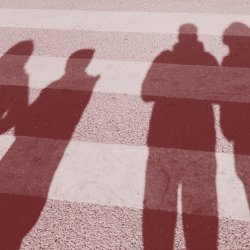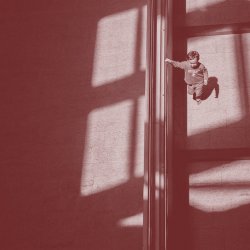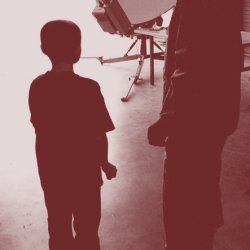Two-thirds of human trafficking victims across the world are from Asia and it is the biggest hub for the exploitation of women and children. Some of the most critical factors driving Human Trafficking in these regions is lack of employment, poverty, minority discrimination and political uprisings. India and Pakistan are prime destinations for victims from less developed neighboring countries in South Asia and South East Asia. Agents or Dalal’s play a vital role in the trafficking of victims as they find ways to build trust with local people who are financially unstable and then traffic them to more affluent areas and cities to be exploited as sex workers, forced labor and used for organ harvesting. (Source)
Continuous media reports suggest that human trafficking in East Asia is also widespread and on the rise. But due to the particular challenges in conducting research-based studies in East Asia, publications on trafficking in this region are rather limited. (Source)
Maya was 22 when she fled her home country of Syria due to conflict in the region. She was promised a job working in a factory in Lebanon, but when she arrived, she was forced into commercial sex along with more than 70 other Syrian women. They endured severe physical and psychological violence. Eventually, police raided the apartment units the women lived in and arrested 10 men and eight women who had been part of the sex trafficking scheme.(Source)
Learn more …
When Jae-Un’s father, brothers, and grandmother died when she was 11 years old, North Korean authorities sent her and her sister to an orphanage. The orphanage did not provide the children with extra clothes or shoes, and they were not able to bathe. Jae-Un slept in a small room that she had to share with more than 45 other children; they could barely move while sleeping. During the day, all of the children had assigned jobs doing manual labor, and each day were forced to work very long hours. Several years later, a missionary helped Jae-Un and her sister escape to China. (Source)
Learn more …
Mei Ling jumped at the chance to work in the U.S. when she saw a newspaper ad for a cleaner at a suburban spa. Mei Ling met up with a recruiter in rural China, who told her, “you’ll be paid four times what you make now.”But when she arrived in the U.S., she was told she wouldn’t be cleaning—instead she would have to provide massages and commercial sex to customers. She wasn’t allowed to keep any money she made in the first year, and was told that she would be deported if she did not comply. “If you ever try to leave, the police will just throw you in jail,” her employers told her. Because of her language barrier and fear of the police, she has remained at the storefront brothel. (Source)
Learn more …
When Ping was 12 years old, an acquaintance offered her and a friend jobs in a different city in Vietnam. Ping and her friend accepted the offer. The recruiter took them to a local bus station and placed them on a bus with their “caretaker.” When they disembarked, the caretaker revealed they were in China and had been sold into prostitution with 20 other girls. When one of the girls refused to do as she was told, the owners beat her severely. Ping suffered in the brothel for almost a year before authorities raided the establishment, rescued the girls, and returned them to Vietnam. Although Ping still suffers from headaches and poor vision—including moments of blindness—as a result of her exploitation, she is training for a career in hairdressing. (Source)
Learn more …
When she was 22 years old a woman offered her a waitressing job in Bishkek, the capital city in the north of Kyrgyzstan. But things took a turn for the worse after arriving in Bishkek. Karimova recalls that, “They held us in an apartment and took away our passports. They told us that we’d be photographed again for our new employment documents, to be registered as waitresses. It felt strange, but we believed them.” Then, Karimova and the other women were put on a plane to Dubai, handed fake passports instead of their real ones, and shepherded to an apartment after landing. “We were to be sex slaves and do whatever the clients wanted. The next day I was sent to a nightclub and told that I would have to earn at least 10,000 USD by the end of the month,” says Karimova. (Source)
Learn more …
Khawng Nu is from Kachin, a conflict affected and impoverished state in northern Myanmar. There are few job opportunities, so when a woman from her village offered her work in a Chinese factory, Khawng Nu accepted the offer. Khawng Nu had been trafficked to birth babies, a type of trafficking that accounts for 20 percent of the trafficking of women in Myanmar. Khawng Nu recalls seeing more than 40 women on the floor of the building where she was kept, some as young as 16. “They give pills to women and inject them with sperm for them to carry babies for Chinese men,” explains Khawng Nu. They were beaten and bullied at any sign of resistance. Once the baby was born, the women would supposedly receive 1 million MMK (USD 632). (Source)
Learn more …
When Fateh, Hassan, and Emir’s father died, they inherited the debt he owed to the owner of the brick kiln where he worked. Through manipulation and deceit, the debt had ballooned in the ten years since its origination and continued to do so after the three brothers assumed it. The brick kiln owner forced Fateh, Hassan, and Emir to work for 13 years as bonded laborers, during which they endured 14-hour days molding and hauling heavy bricks, constant harassment, and physical abuse. The brothers were able to escape and sought assistance from a local NGO. With the help of a local government official, they received release certificates freeing them from the false debts and local law enforcement filed charges against their trafficker. (Source)
Learn more …
In 2003, Karmo came to the US, seizing the chance to work in the US on a G5 domestic worker visa which provided a huge opportunity to improve her family’s living conditions. However, once she came to the US, Karmo worked under terrible conditions. She was forced to work from early morning until late at night, isolated and prohibited from talking to other people. Karmo’s passport had been confscated by her employer and she was told she could be picked up by the police if she complained. After her rescue, Karmo experienced anger, frustration and hopelessness as she recovered from her trafficking situation. Karmo states, “The sweat of my labor was in vain, it is gone like flowing water. I am getting old but I don’t have any money saved to live the rest of my life and my whole body is in pain.” (Source)
Learn more …
Sadi Ahmed was lured to Rawalpindi in the hope of getting a job, but was held hostage for three months by an organ trafficking gang. Sadi was one of 24 people rescued by police in Rawalpindi, Pakistan. They had been imprisoned in a building in an affluent suburb, awaiting the forced removal of their kidneys. “There were 20 to 25 other persons sitting. I was told to shut up and be quiet and sit there. About 10 minutes later, the agent arrived and said get ready as I was going in for a test. I asked, ‘What type of a test are you taking me for? What type of work are you offering?’.” The traffickers wanted to test his kidney, and told him he would be given the equivalent of £2,300 for the organ. Mr. Ahmed says he was “beaten up, not allowed to go out, we were padlocked in”. “We were threatened that the police would beat us up and we would be killed.” When police raided the building, Mr. Ahmed was saved just in time. He was due to have his kidney removed at a nearby hospital, called the Kidney Centre, a few hours later. (Source)
Learn more …
Mansur sold family land to pay a Dhaka employment agency that promised him well-paying work in Libya. When he and some 40 other Bangladeshi workers landed at the Tripoli airport, two men from the agency met them and immediately took away their passports. The agents then took the workers to an abandoned warehouse in a suburb of Tripoli and told them to wait there. They threatened to deport the men if they disobeyed. Not able to speak any language other than Bangla, Mansur and the others remained in that warehouse for two months, helpless and nearly starving. When the agents finally took the men to work, they deducted more than half of the promised monthly salaries for food and accommodation. When fighting erupted in Libya in February, Mansur and the group of Bangladeshi workers fled with whatever little money they had managed to save. The men were robbed and joined more than 10,000 other Asian and African migrant workers at a refugee camp near the Tunisia-Libya border, waiting to go home empty handed after years of toil. (Source)
Learn more …
Omid (not his real name) is 15 years old. His father died in the fields, when he stepped on a landmine. As the eldest son, it’s his job to look after his mother – who begs on the streets – and two younger brothers. “I started dancing at wedding parties when I was 10, when my father died,” says Omid. “We were hungry, I had no choice. Sometimes we go to bed on empty stomachs. When I dance at parties I earn about $2 or some pilau rice.” Sometimes people take him to hotels. Omid says he is paid about $2 for the night. Sometimes he is gang raped. He does not go to the police to report the rapists. “They are powerful and rich men. The police can’t do anything against them.” (Source)
Learn more …











